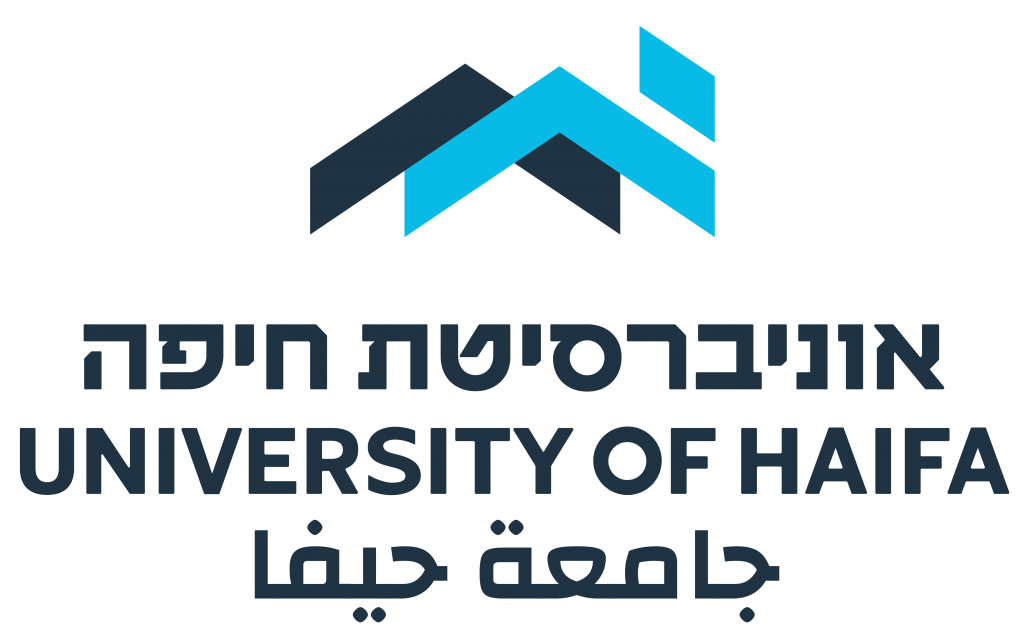החוג לשפה וספרות אנגלית
החוג לשפה וספרות אנגלית באוניברסיטת חיפה הוא בית למחקר ולהוראה חדשניים המתמקדים בספרויות באנגלית ובתרבויות שהצמיחו אותן. אנחנו מציעים תוכנית תלת-שנתית לתואר ראשון, וכן תוכניות לתואר שני ולדוקטורט במגוון התמחויות. סגל החוג חוקר ומלמד קשת רחבה של סוגות ותקופות, מהספרות האנגלית הקאנונית של שבע-מאות השנים האחרונות ועד לתחומים ולמבעים חדשים העוסקים בבעיות הסבוכות של ימינו: משייקספיר ועד טוני מוריסון, משירה רומנטית ועד מדע בדיוני פוסט-קולוניאלי, מהרומן המודרניסטי ועד תיאוריה ספרותית עכשווית, כתיבה יוצרת ותרגום.
תוכנית הלימודים שלנו מספקת מענה לדרישות ולאתגרים שמציב עולמנו המשתנה. כיוון שכל ההרצאות, חומר הקריאה, ומטלות החוג הם באנגלית, הסטודנטיות והסטודנטים שלנו מוכנים לשלל מסלולי קריירה, מקומיים וגלובאליים כאחד. גאוותנו בתרבות חוגית מקבלת ומגוונת, עם סטנדרטים אקדמיים ללא פשרות ועם תשומת לב אישית. לצד זאת, החוג משתף פעולה עם הקהילה האקדמית הרחבה על מנת להציע תוכניות רב-תחומיות, שילוב במחקר, אירועים תרבותיים וחברתיים, ואפשרויות לימודים בחו"ל.
לכל הקשור בהנגשת ההוראה ל"קבוצת הסטודנטים" ניתן לפנות לד"ר קרן עמרי במייל: komry@research.haifa.ac.il
"קבוצת הסטודנטים" כוללת: חיילות וחיילים בסדיר ובמילואים, נשות ואנשי כוחות הביטחון, בני ובנות הזוג של המגויסים והמגויסות, בנות ובני משפחות שכולות, משפחות החטופים, משפחות המפונים ואוכלוסיות אחרות שנפגעו כתוצאה מהמלחמה.
חדשות

English Department Newsletter
Check out the latest edition of our Department Newsletter.
The judges of the Noga Nir Creative Writing Prize in 2024 included: Jenn Lewin, Yosefa Raz, Andrew Gorin, Tom Nachman, Elisheva Manevich, and Nour Ibrahim
1. First Place, BA poetry prize, Guy Kaplunsky, For his poem-series, “Hope Engineered”
Judges’ comments: Guy’s poems are nimble, profound, and a pleasure to read. His sonnet sequence is richly laden with allusions to writers, public figures, geographical features, and global politics, all put in service of fascinating thought experiments. These poems are a pleasure to read and at the same time they convey charismatic facts about the world!
2. Second Place, BA poetry prize, Hadeel Majdoub for her poem “Sitting in a Classroom”
Judges’ Comments:
Hadeel’s free-verse poem is brilliant and fierce yet also subtle in its critical analysis. She cannily uses symbolism and manages to represent an individual’s interior life by showing and not just telling, something not so easy to do!
3. Third place, BA poetry prize, Khaled Khateb, for his poem, “A Cycle of Maroons”
Khaled’s poem “Cycle of Maroons” masterfully employs its refrain in such a way that it takes on new and increasingly complex meanings with each repetition. The judges were impressed by the combination of intense lyricism and social urgency.
4. MA poetry prize, first place, Islam Hassadya, for his poems “I Sing Redemption” and “Elegy of the Wasteland”
Islam's quatrains positively evoke W. H. Auden in their timeliness. They call on us all to cherish our common humanity in a discouraging time. These poems propel us forward with rhythmic intensity through wastelands of grief but toward hope.
5. Honorable Mention for Tova Hope-Liel, for her short story, “Unskilled Labor”
Though there was only one BA entry for fiction this year, the judges want to note Tova’a well crafted prose – there was not one superflous sentence in this suprising and pleasurable story.
The committee is pleased to award the BA essay prize to Moe Shaheen for his essay, “‘I say God is Dead!’: Mastering Nihilism in Arthur Miller’s The Crucible” written for Dr. Feldman’s seminar on “Staging the Law: Trials in Theatre.” We found the paper to be very well-written and argued, displaying a keen ability to theorize from difficult primary sources in philosophy and literature, thus displaying an excellent understanding of the way literary interpretation can work.
We are equally happy to award the MA essay prize to Shoruq Mhamed for “Being Human: Ashtar’s Richard II at The Globe.” Written for Dr. Barzilai’s MA Seminar “Re-Presenting Shakespeare: Cross-Medial and Cross-Cultural Adaptations,” the committee agreed on how well-researched and smart the paper is; its argument about the challenges of bringing Palestinian identity into conversation with not only Shakespeare but also his contemporary commercialization was original and illuminating.


